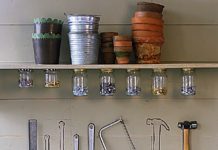Like the stock market, the real estate market can go up and down. Over the long term, though, it tends to go in one of those directions more than the other: up. If you choose to buy real estate and hold on to it for years, you may find that your investment pays off big-time. Whether you own your own home, a vacation property, a rental property, or all of the above, it is possible to see real estate holdings grow significantly in value over time.
Of course, it’s not as simple as all that. Let’s take a look at the logic behind buying real estate for the long term, and how you can maximize the potential of your investment.

Why — and when — it makes sense to buy
Should you rent the home that you live in, or buy it? It’s a debate that goes back for as long as there have been homes available to rent or buy. The truth of the matter is that whether renting or buying is the better financial decision depends on the circumstances. But there are two things that most people generally agree are true: First, that there are some inherent financial advantages to buying. Second, that those advantages tend to win out over the long term.
When you buy your home, youl pay a mortgage every month, which adds to your equity in the home. That won’t be so different from paying rent, but it will give you a real advantage in that your money will be going toward an asset that you’ll own; if and when you want to sell you home (or use its value in other ways), you’ll get some of that value back. These advantages might be outweighed by closing costs if you were to buy a home to live in for just a year or two, but if you’re buying real estate for the long run, you’ll be better off, explains an expert real estate agent.

Architect: Brandon Architects
Material Selections: Brooke Wagner Design
Photographer: Ryan Garvin; Jeri Koegel (night shots)
Choosing a long-term real estate investment
If you do decide that it’s time for you to invest in a home, how should you choose one?
As real estate agents are fond of saying, a key part of the equation is “location, location, location.” Your property’s value will stem, to a large degree, from where it is located and how close to major employers and other attractions it is. A beautiful setting matters, too, point out experts who offer mountain homes for sale in North Carolina. And while you can’t know where the real estate market will go in the long term, it can’t hurt to buy in a market that is showing a low of growth, like North Carolina.
Think about the property you’re buying, too. Is the home sturdy and in good repair? If you’re buying a plot and building new, are you building a home that feels as “future-proof” as possible?

Architect: Brandon Architects
Material Selections: Brooke Wagner Design
Photographer: Ryan Garvin; Jeri Koegel (night shots)
Maintaining your investment
No matter how great your home is, its value could still go down over time. Normal wear and tear and a changing local market can all contribute to a decrease in the value of your property.
A home is a complicated thing, full of systems that are interdependent and which require care and repair work. As a homeowner, you need to keep track of everything with a home maintenance checklist and partner with the right contractors and maintenance teams to ensure that your valuable property maintains its value over the years.

You may also find that it’s wise to expand or renovate your home. Specifically ahead of a potential listing and sale, you may consider some remodeling and updating of outdated spaces, like the kitchen or bathrooms. You could also consider adding a backyard patio or a front porch to increase the value of your property.


























